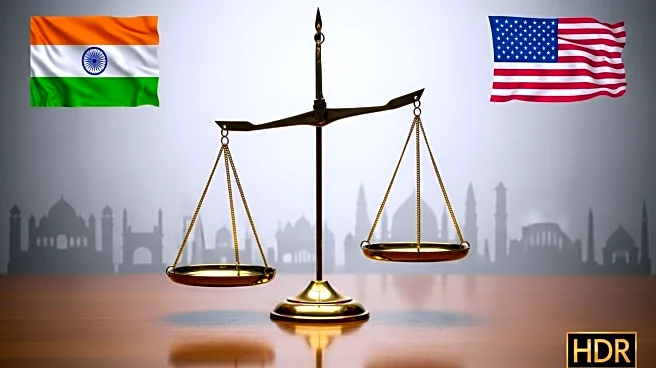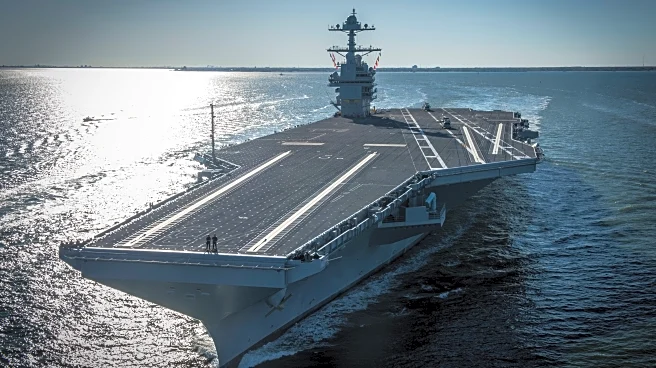What is the story about?
What's Happening?
India and the United States have resumed trade negotiations following a period of strained relations due to tariffs imposed by President Trump. The US has levied a 25 percent tariff on Indian goods, which was further increased to 50 percent on certain products like jewelry and clothing. This move was intended to address a trade deficit with India, which has seen its exports to the US nearly double since Trump's first term. Indian Prime Minister Narendra Modi has taken a firm stance against these tariffs, refusing to back down despite potential job losses in strategic sectors. Modi's approach has been to maintain India's non-aligned status and resist geopolitical pressure, while also seeking to increase trade ties with the European Union.
Why It's Important?
The ongoing trade negotiations between India and the US are significant as they impact both countries' economies and their geopolitical strategies. The tariffs have raised prices for US consumers and could lead to job losses in India, affecting sectors vital to its economy. Modi's refusal to yield to US demands highlights India's desire to protect its agricultural sector and maintain its multipolar world outlook. The situation also underscores the complexities of international trade relations, where economic interests are intertwined with geopolitical strategies. The outcome of these negotiations could influence global trade dynamics, particularly in how countries like India balance relations with major powers like the US and China.
What's Next?
As negotiations continue, both countries are expected to seek compromises that could alleviate the tariff impacts. India is prepared to lower tariffs on less sensitive sectors, but insists on the removal of punitive tariffs by the US. The US Supreme Court is set to hear a case on the legality of Trump's tariffs, which could influence future trade policies. Additionally, India's efforts to strengthen trade ties with the European Union may provide alternative economic opportunities, potentially reducing its reliance on US trade. The evolving situation will require careful diplomatic maneuvering from both sides to reach a mutually beneficial agreement.
Beyond the Headlines
The trade dispute between India and the US highlights broader issues of economic nationalism and protectionism. Modi's firm stance reflects a growing trend among nations to assert their economic sovereignty and resist external pressures. This could lead to a reevaluation of global trade practices, where countries prioritize domestic interests over international cooperation. The situation also raises ethical questions about the impact of tariffs on consumers and workers, and the role of political leaders in shaping economic policies that affect millions. Long-term, this could influence how countries approach trade negotiations and balance economic growth with geopolitical strategies.















